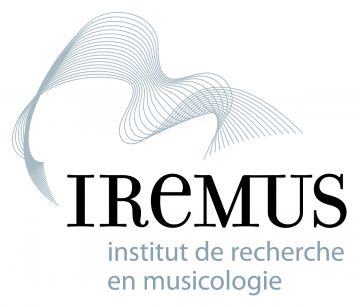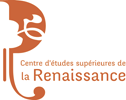The first Académies de musique, Académies de Concert (also simply called Concerts) emerged in the 1710’s and expanded considerably between 1720 and 1750. They rapidly spread across France and instituted a major innovation – that of public concerts. Early on considered genuine Académies and as such participating in the academic movement of learned societies in the 17th and 18th centuries, they quickly attainted official status. By virtue of letters patent and published statutes and regulations, and despite their diverse modes of operation and sociability, these Académies shared their approach and musical repertoires.
The focus of these Académies on organising concerts distinguished them from contemporary learned societies. Specifically, they did not depend on any royal Académie, although they had a conventional academic structure. Considering how institutional history questions the link between centralised power in Paris and the Provinces, it is essential to study these Académies de Concert if one is to understand the 18 th century academic movement in general. It provides a fresh map of the production and dissemination of music throughout the Kingdom.
Organising weekly concerts in over forty towns across France meant that the Académies de Concert avoided the historiographical predominance of the musical hub of Paris and Versailles. They emerged as key for the creation, performance and dissemination of French musical repertoire. They played a major role in city life, with their exceptional involvement in intellectual and artistic circles, their active promotion of music and their close ties with both regional and Paris authorities. French musical academicism remained involved in artistic centres around the end of the reign of Louis XIV and also widened out to European academic circles, creating an unprecedented upheaval in the cultural landscape of the Ancien Régime. The Académies sixty year existence witnessed the first public concerts, heralding a transformation of musical venues, audiences and repertoires.
Three research objectives
A list of institutions and corpus of material
ACADEC’s first objective is to produce a global mapping of the Académies de Concert in existence between 1710 and 1770, with a listing of their period of activity, special features, interconnections and players involved. This means creating and organising a very diverse corpus of material (comprising official texts, administrative archives, collections of music & musical treatises), rarely featured or catalogued in the various institutions.
A global study of musical academicism
This second objective involves investigating a key aspect of European Enlightenment hitherto ignored in musical research, which we shall call ‘musical academicism’. We shall attempt to provide a description, timeframe and geographical mapping, establish its place in European academicism, and pinpoint the key issues involved.
Fresh insights into the musical repertoire and performance
This third objective involves identifying, exploring and promoting a little-known and scantily documented area of French musical heritage. Provincial repertoires should not be considered second rate or insignificant – initial findings have shown that they more than warrant a reappraisal. They provide valuable insights into contemporary musical practices in France and the spread of musical genres.
Three hypotheses from ground-breaking research
The Académies de Concert represented a fourth venue for music, on a par with the
Church, the theatre and aristocratic salons.
They acted as a breeding ground for French culture in their own right and merit a place in history alongside the other major musical forces. It is more than time to investigate the emergence of the Académies de Concert and the spread of its repertoires and to study the influx of musical energy generated by the advent of the Académie de Concerts in 1710.
One must reconsider the notion of Paris vs the Province, and take a fresh look at the
relations between Paris/Versailles and what lay beyond.
Provincial artistic centres worked relatively independently from the Parisian or Versailles models, and their music and artistic careers ranged widely geographically speaking. A fresh, more open approach should be used, which will provide insights into the Paris venues and the definition of musical genres, placing provincial life in a wider European context.
The Académies de Concert produced a distinctive repertoire.
They adapted musical genres issuing from different contexts, i.e. music dictated by liturgical, staging or budgetary constraints, or music from different venues or social settings. As research into French church music demonstrates, one must distance oneself from the vision of a work defined
solely by the creative act and consider instead its various modes (reworkings and arrangements) as individual creations, helping to demonstrate the merits of the music produced in the Provinces.
TEAM
ACADEMIC PANEL
Pierre-Yves Beaureparis (Mod. Hist.), Côte d’Azur university
Youri Carbonnier (Mod. Hist.), Artois university
Bénédicte Hertz (Musicology), CMBV-CESR
Raphaëlle Legrand (Musicology), Sorbonne university
Pauline Lemaigre-Gaffier (Mod. Hist.), Paris-Saclay university
Irène Passeron (History of Science), IMJ-PRG
Émilie Roffidal (History of Art), FRAMESPA
Thomas Soury (Musicology), Lumière-Lyon 2 university
Stéphane Van Damme (Mod. Hist.), ENS-PSL
Thomas Vernet (Musicology), Fondation Royaumont
ARTISTIC TEAM
Collaborating in the research project and promoting the repertoire, Fabien Armengaud (Music Director of the CMBV choir Les Pages and Les Chantres) contributes a pedagogical slant to the project. The team will receive support from professional music ensembles (partners of the CMBV and the Fondation Royaumont) and Early Music departments at the CNSMD, CNSMDP and Paris & Versailles regional Conservatoires.
Partner institution
- Fondation Royaumont
- Académies des Sciences, Belles-Lettres et Arts de Lyon
- Archives municipales de Lyon
- Bibliothèque municipale de Lyon
- Comité des travaux historiques et scientifiques (CTHS)
- Conservatoire National Supérieur Musique et Danse de Lyon (CNSMD)
- Institut de recherche en musicologie (IReMus)
AcadéC – Music Academies in the 18th century
Programme CONTRIBUTORS SESSION Invitation à croiser les données des programmes AcadéC et ACA-RES (Les Académies d’art et leurs réseaux dans la France préindustrielle) Guest: [...]
AcadéC – Music Academies in the 18th century
Program CONTRIBUTORS SESSION Vie du projet Retour de collecte Ludivine Panzani (Université de Lille – IRHiS) Sur les traces de l’Académie de musique de Nancy, une institution [...]








